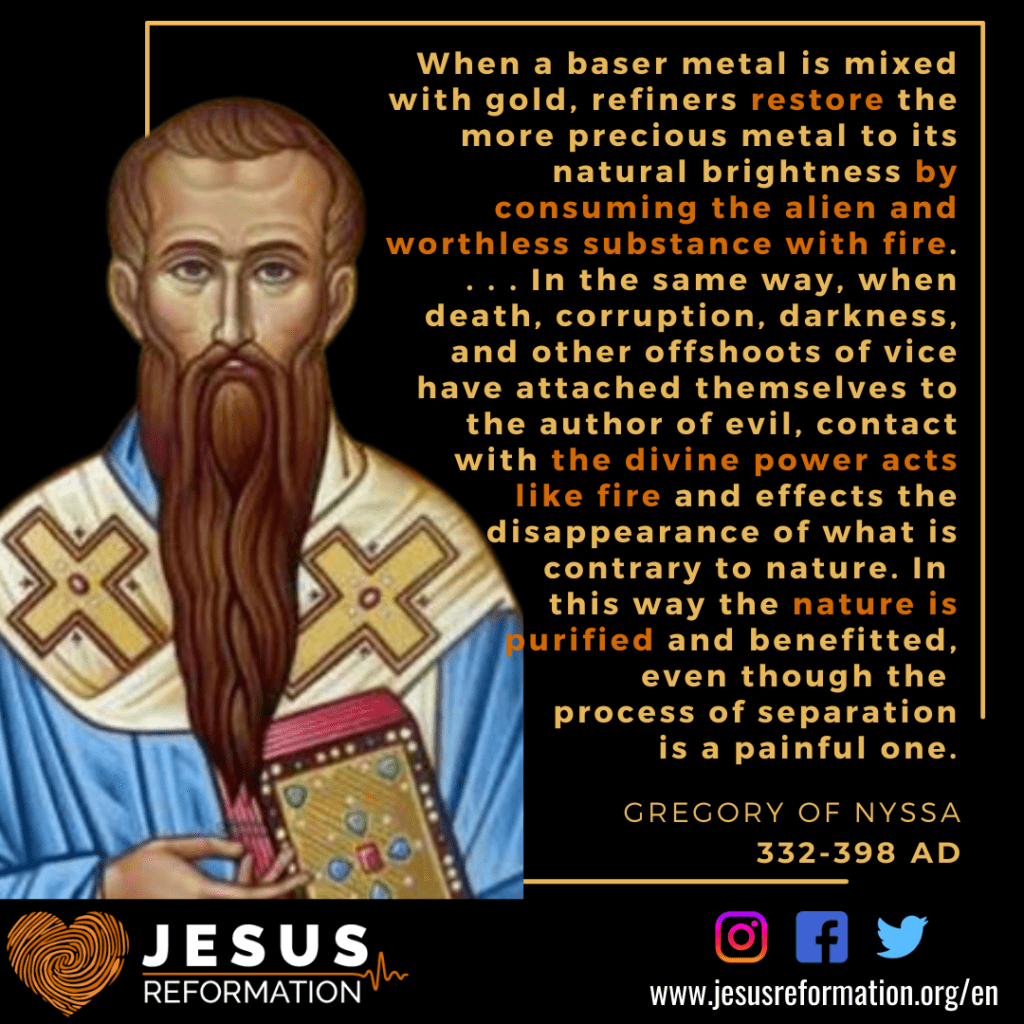“But whoever denies me before people, I will deny him also before my Father in heaven.” (Mt 10:33, NET) “Those who practice such things will not inherit the kingdom of God!” (Gal 5:21, NET) In this article, I’ll answer how verses like this fit together with the belief that God will reconcile the whole cosmos.
In order to understand verses like this, we first need to understand one important principle that we find in many verses: only people with hearts that are fully surrendered to Jesus are able to enter the kingdom of God.
Why? Simple! Because if you let wolves enter the sheep pen, then it won’t be very peaceful in the sheep pen. Now God is ruling through love (which doesn’t override free will) and he will do the same in his future kingdom. He won’t control us, and therefore he needs to know that the people who enter his kingdom are truly surrendered to him and his way of love. Because not fully surrendered hearts would reintroduce sin and suffering in God’s future kingdom. Therefore, only people who are fully surrendered to God and his way of love will be able to enter the future kingdom of God (which is totally logical because a kingdom is a realm wherever a king reigns, that means the kingdom is wherever God reigns; therefore we can only enter the kingdom of God if we submit to God’s kingship).
People who still cling to sin and don’t surrender to the lordship of Jesus can’t enter the kingdom of God. This is affirmed in countless verses throughout the New Testament:
1 Cor 6:9-10; Gal 5:19-21; Eph 5:5; Rev 22:15
How can we now reconcile that sinners can’t enter the kingdom with verses that claim that ultimately God will reconcile the whole cosmos back to him?
Sinners can’t enter the kingdom as long as they are sinners. Let’s look again at 1 Cor 6:9-10. Paul is boldly proclaiming that sinners (idolaters, adulterers, greedy…) “will not inherit the kingdom of God.” But right in the next verse he is saying, “Some of you once lived that way” (1 Cor 6:11, NET). His audience used to be sinners like that. They followed the way of selfishness and rebelled against God’s way of love. In that time, they couldn’t enter the kingdom of God. But now they surrendered to Jesus. They repented from sin and live under the lordship of Jesus. Now they are part of the kingdom.
The principle is clear: as long as people rebel against God and his way of love, they can’t enter the kingdom, but whoever repents and submits to the lordship of Jesus becomes able to enter the kingdom.
Believing that God ultimately will reconcile all people, doesn’t mean believing that God simply will ignore sin and let everyone enter the kingdom. What we do has consequences. God will judge. And his judgment will be painful (not in a sense of physical torment but more in a sense of regret and painful realization of the truth), but it will be restorative in nature. Repentance is always necessary for salvation. Because repentance means turning away from the way of selfishness and evil and aligning one’s life with God’s way of true love and forgiveness.
The early church fathers that believed that God will save everyone didn’t believe that unbelievers would enter the kingdom right away. They believed in an age (or maybe even ages (=aeons)) of correction.

In this time of correction (which is God’s restorative justice) God’s purifying fire of love will lead every soul to repentance so that then they will be able to enter the kingdom.
God’s work of salvation is not limited to this world, but his loyal love endures and has no end.

God’s consuming fire will burn away all our evil, and he will draw us to him by revealing truth to us and freeing us from our blindness and illusions.

With all this in mind, we can understand Mt 10:33 in the proper way. As long as people deny Christ, they will be denied by him. All those who resist Christ won’t be able to enter the kingdom, and therefore Christ needs to deny them. But this is only true until they repent and submit to his lordship. Example: Peter denied Jesus three times. That doesn’t mean that Jesus will deny Peter eternally.
The grammar in the verse affirms this reading. The tense of the verb deny “implies an ongoing action which triggers an ongoing response. The Concordant Literal Version does a good job capturing this ongoing sense. It reads, “Yet, who should ever be disowning Me in front of men, I also will be disowning him in front of My Father Who is in the heavens.” In other words, as long as someone is denying Jesus, Jesus is denying them before the Father. And the reverse is also true. Once someone stops denying Jesus, Jesus stops denying them before the Father” (David Artman, Grace saves all, 2020:Being disowned).
It’s like in the story of the prodigal son. The father didn’t coerce his son to stay with him. He gave him freedom. He waited for the son to repent (to turn from his way of rebellion and return to the father). The father waited with open arms. God waits with open arms. His love doesn’t come to an end. But repentance is necessary. Repentance and the kingdom of God are always intertwined in the teachings of Jesus (Mt 4:17; Mk 1:15).

God’s love is so irresistible that ultimately it will lead every person to wholehearted repentance, which will result in every person submitting to God. Then God will be all in all (1 Cor 15:28), and he will be ultimately glorified.
More articles related to the topic:

Leave a Reply